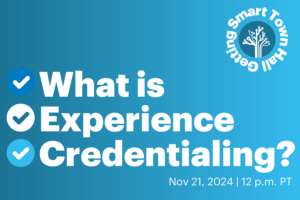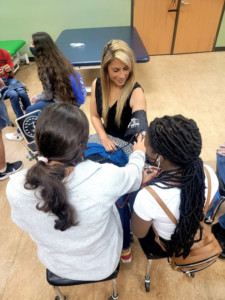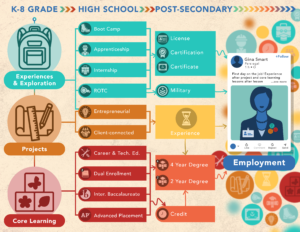Can Online College Education Ever Really Be Free?

By Mariana Ashley
The ingenious idea of giving students access to post-secondary education online has really helped many people follow their dreams over the past few years, especially those who wouldn’t be able to pursue a higher education otherwise due to various circumstances like having a fulltime job, raising a family, suffering from a learning disorder, or living in a rural area.
While online schools have opened up a gateway of opportunities for those in need of a flexible schedule, they have yet to resolve an issue that continues to hold back so many aspiring students: tuition costs. Online schools are just as expensive as traditional education; sometimes even more if a student attends a for-profit institution. But thanks to Shai Reshef, an Israeli-born educational entrepreneur, online education may just have gotten a lot more “affordable.”
In 2009 Reshef founded University of the People (UoPeople), a non-profit online school that offers a U.S.-style, four-year undergraduate education entirely for free. To date, UoPeople has enrolled more than 1,500 students from more than 130 different countries.
The institution, which is based in Pasadena, California, is affiliated with the United Nations GAID, the Clinton Global Initiative, and Yale Law School ISP.
While prestigious schools around the nation like MIT and Yale have technically offered online classes for free for years, UoPeople is truly one of a kind. That’s because unlike open courseware, which simply makes old class materials and syllabi available to hungry learners, UoPeople actually offers degrees. Students actually earn credit because they aren’t “self-taught.”
A team of more than 2,000 professor-volunteers, most of which come from NYU, Harvard, Columbia, Yale and Oxford, supervise their students. The school’s provost, David Harris Cohen, was Columbia University’s former vice president.
The online classes heavily rely on peer-to-peer teaching yes, but if none of the students understand the material at hand, a trained professor will step in and intervene.
In addition to Reshef’s own monetary contributions, corporate sponsors like Hewlett-Packard and Intel offer scholarships that help keep the institution afloat.
While it may seem like a dream come true—an entirely free education aside from the $10-$50 application fee and $100 for examination fee—it does have some minor drawbacks. The first is that programs are extremely limited. Only Computer Science and Business Administration programs are offered since it’s believed that these two industries provide the most jobs.
Secondly, the school isn’t accredited and thus credits cannot be transferred to other institutions. This also means that although you may obtain a valid education, your degree might not hold as much weight as a degree earned from an accredited institution when applying for jobs. There is an exception however: last year New York University agreed that those who complete at least one year at UoPeople could apply and be eligible to continue their education for free at NYU Abu Dhabi. It’s a long ways from home if you live in the States, but still a wonderful opportunity.
What are your thoughts on UoPeople? Do you think this model will work for long?
Mariana Ashley is a freelance education writer for www.onlinecolleges.net, a website that specializes in distance education and alternative learning. She encourages your comments below.







Christine Rose Miller
Hey! I was reading through your website and loved the design and content. Is there any way I could help contribute?
Thanks,
Christine
Jerlene
I've been looking for one for a while. This seems to be the closes so far, although I'd prefer an accredited school.